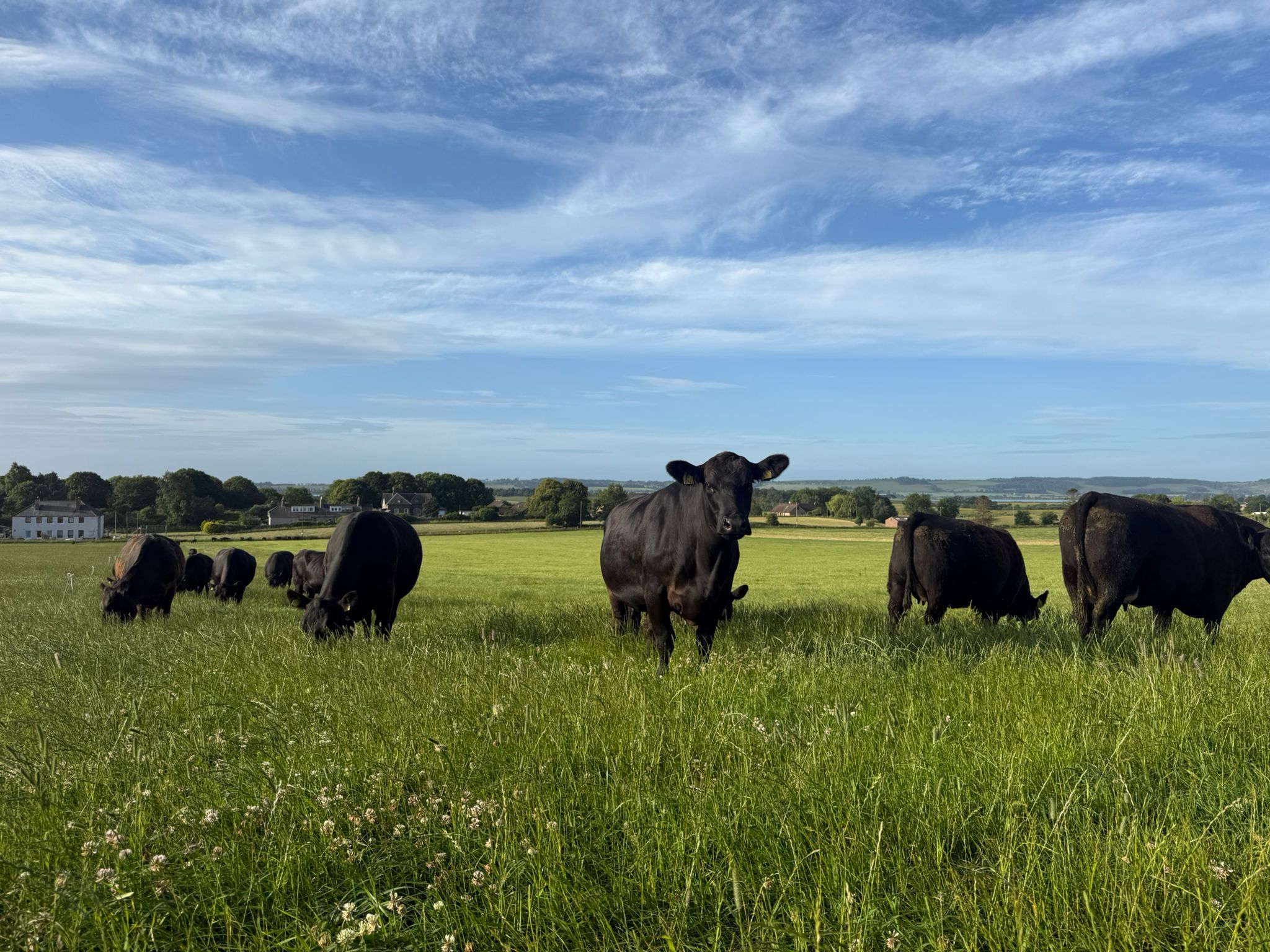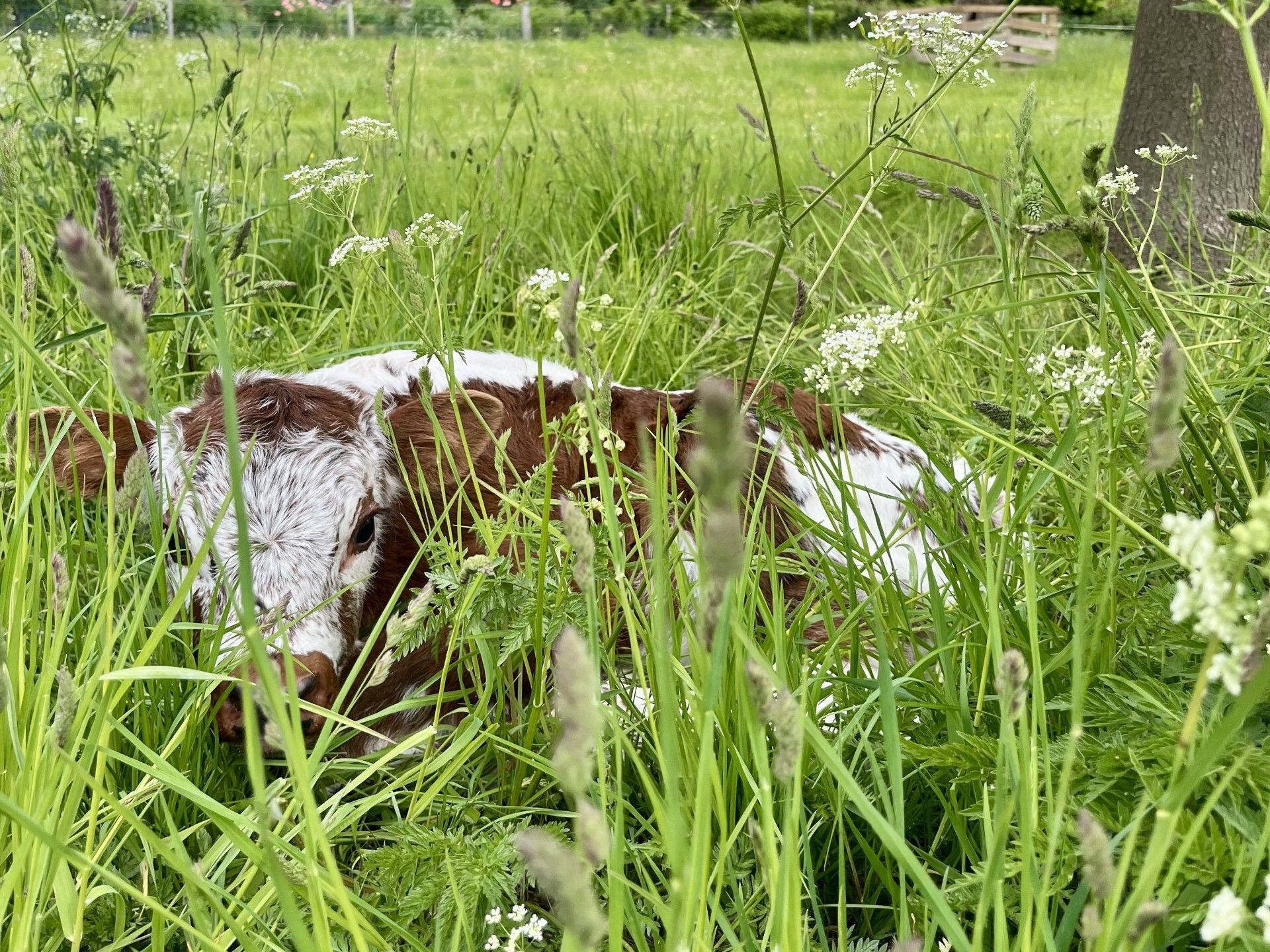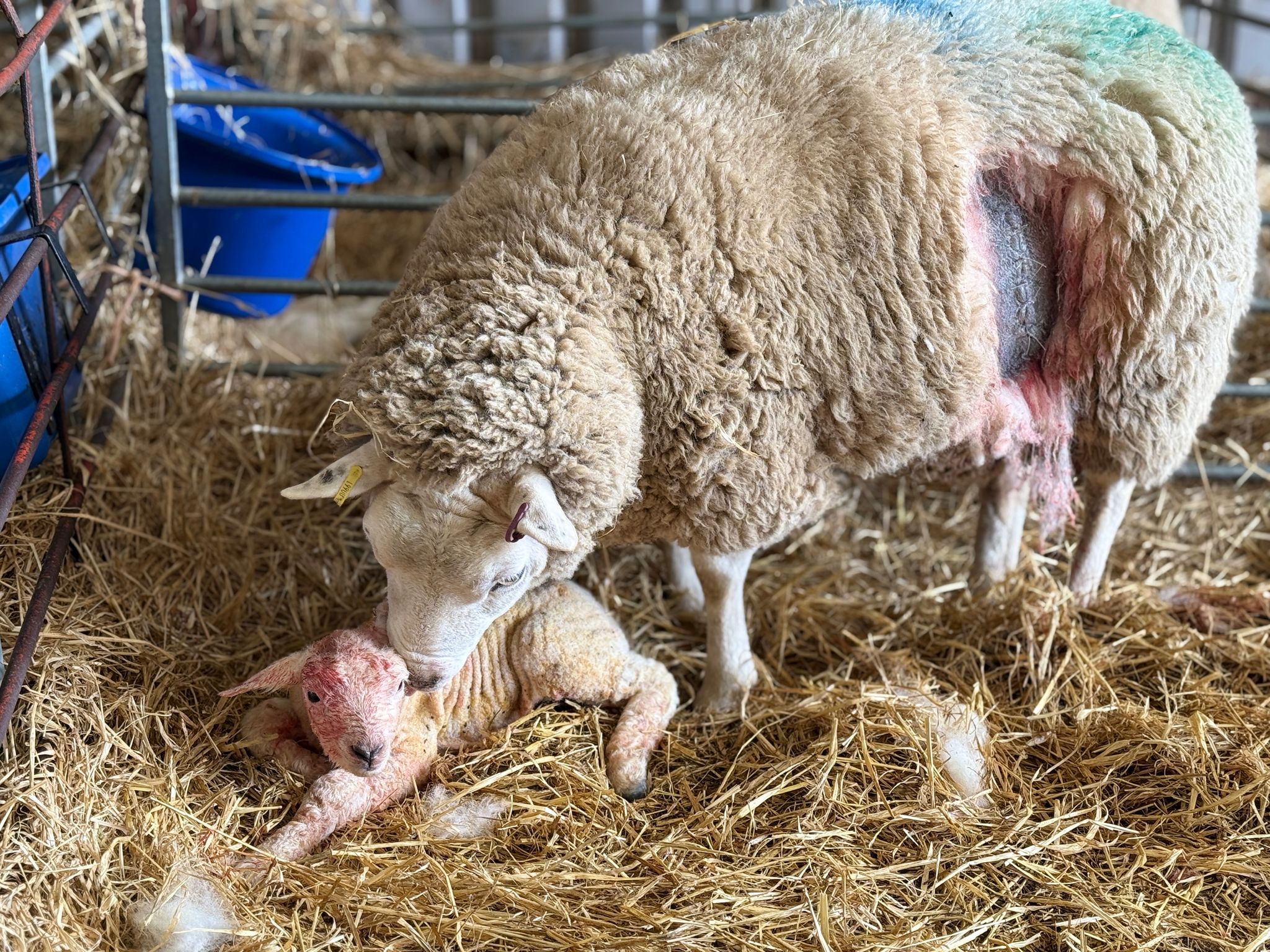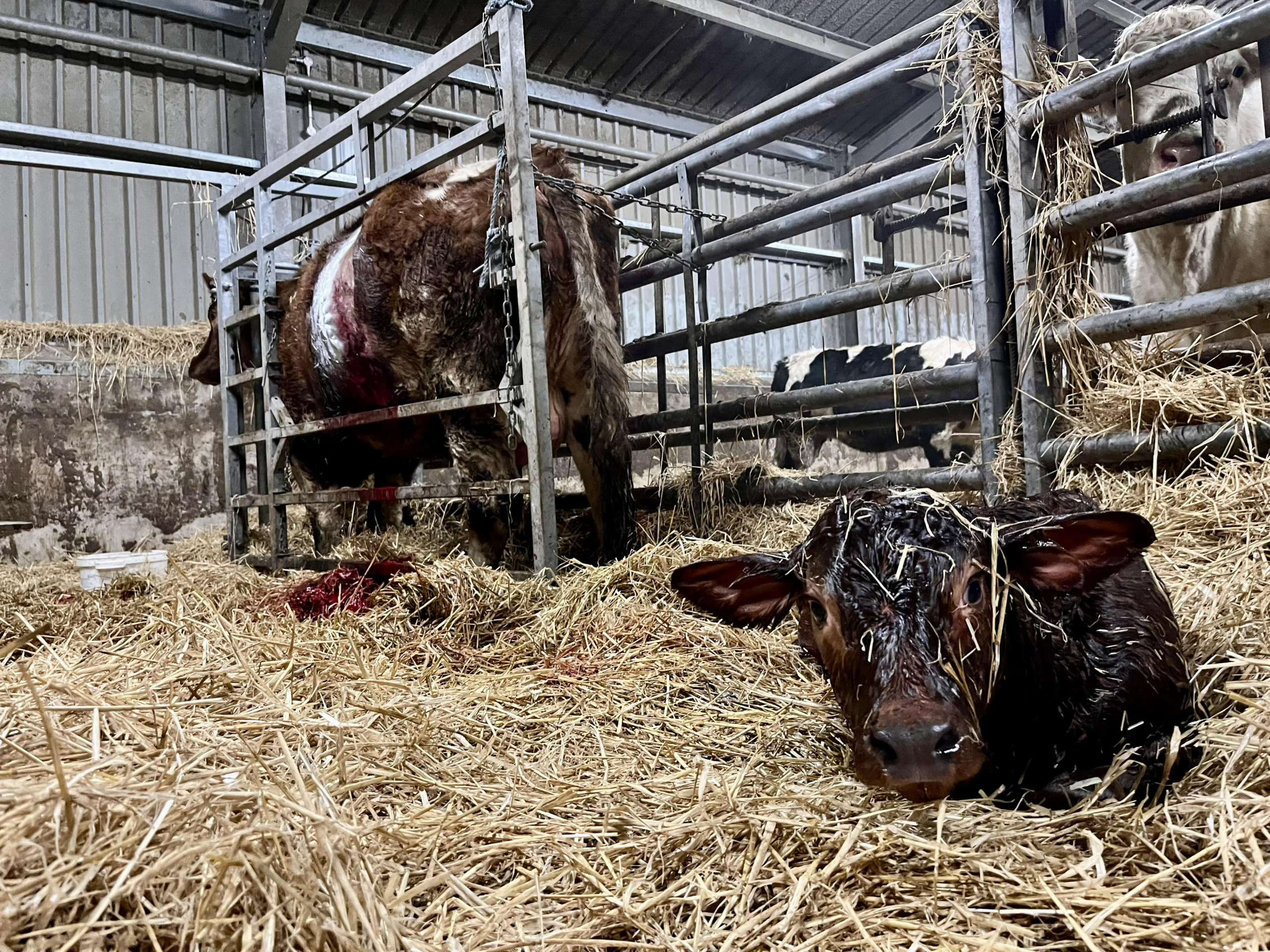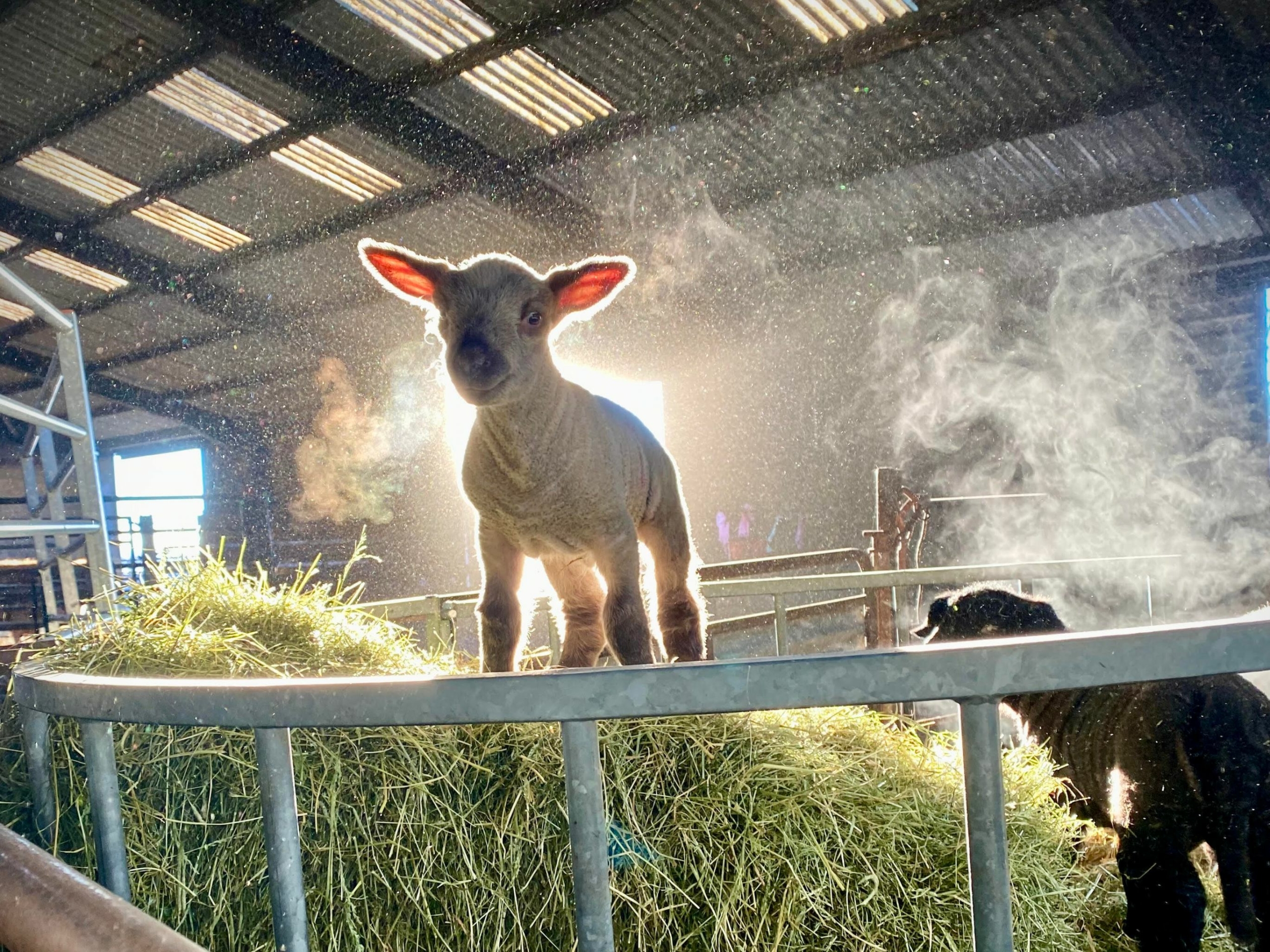Farm Newsletter August 2023
At the time of writing we are looking at the first decent week of weather in some time, which will no doubt come with some relief – getting on with anything has been tricky. We have started scanning the first of the spring calving herds – this might seem a bit early but the advantages show by being able to be accurate with expected calving dates and picking up several sets of twins that would otherwise be missed if scanning into the winter.
This week we welcome to the practice two new vets – Clare McKeown and Maya Baugh. Both graduated earlier this summer and join us on our now well established mixed vet new graduate programme, so you will expect to see them out on farm under the guidance of our experienced vets to start with as they build their skills, knowledge and experience. We’re also delighted to say that Liesl and Erin who joined us on the programme last year are staying on as fulltime members of the team.
This is now the third newsletter to go out by email and will be the last one to go out as a paper copy also. Please do make sure you sign up using the link below.
Subscribe here – https://eepurl.com/irN7NY
Are you making the most of the Preparing for Sustainable Farming Grants?
Hopefully by now you will be aware of the funding being made available to Scottish beef and sheep farm over the next two years, with the broad objective of making your farm a healthier and more profitable one. A total of two £250 claims can be made per year (these could be two cattle, two sheep or one of each) for specific interventions with a further £250 available in the first year as a “development payment”; totaling £750 available in the first year and £500 in the second year.
Once an intervention has been completed then a form will be completed by both yourself and us to support the claim. Full information on the grant can be found at ruralpayments.org but below we hope to outline how we interpret the specific interventions available and how we would advise making the most of them.
Full details of what can be claimed for are below, but please don’t hesitate to give us a call to discuss implementing the grant for your farm.
Development Payment
As well as claiming £250 per intervention, an additional £250 will be claimable in the first year as a “development payment”. This is essentially set aside for knowledge exchange, but will not be audited nor will you be required to provide proof of what this was used for. However, we would encourage you to set this money aside for things that we would consider knowledge transfer such as health planning or attendance on an animal health course.
Cattle Interventions
Bull Pre-breeding Soundness Examinations
What’s involved?
A physical examination of bulls, coupled with full semen analysis, prior to breeding.
Why?
Fertility under-pins beef herd performance and profitability, and often an underperforming bull can be the limiting factor in this. Pre-breeding examinations for every bull, every year are becoming the standard on many units. If you are in the habit of already doing this, the money could be used towards your normal interventions, but if not we would strongly recommend beef farmers take up this option.
What do I get for my £250?
£250 is likely to cover examinations of two bulls.
Calf Respiratory Disease Investigation
What’s involved?
Taking samples through a combination of bloods, swabs and post mortems (if appropriate) to identify what bugs are on farm. An examination of the housing environment may also be carried out.
Why?
We deal with crippling respiratory disease outbreaks every year, with significant impacts on mortality and growth rate of calves. Which bugs are involved can be very farm specific and therefore a farm specific intervention plan is very valuable. Which bugs are involved on a farm can change over time also, with new ones like IBR or Mycoplasma being introduced.
What do I get for my £250?
A typical pneumonia investigation may total in the region of £500 for a pair of visits and blood sampling, so whilst the £250 may not totally cover the bill, it will make a significant dent in it. Bearing in mind an outbreak of pneumonia can take thousands off your bottom line, this may be money well spent.
Sheep Interventions
Scab Screening
What’s involved?
Blood sampling 12 animals per management group to check for recent exposure to scab. A treatment and/or biosecurity plan can then be drawn up.
Why?
Scab continues to be a widespread, debilitating issue. Relying on treatment with “ML” injections as a precaution can lead to serious issues with resistance to both scab and worms. Therefore targeted treatment only when required is far more sustainable. Blood sampling to check for exposure is a key part of this sustainable approach.
What do I get for my £250?
£250 would cover a visit, time and fees to blood sample two groups of 12. If just screening one group it would also go some way to covering a second visit and follow up or second screen in the year.
Cull Ewe Screen
What’s involved?
Screening ewes in poor BCS that have been selected for culling for the common “Iceberg Diseases” – Maedi Visna, Johne’s, CLA, Borders Disease and OPA. Blood sampling of 6-12 thin sheep and ultrasound scanning of lungs for OPA.
Why?
Iceberg diseases can cause a chronic drain on flock performance through increased mortality and culling. They can also be hard to identify unless actively screening for them and are much easier to deal with if picked up early before too widespread in the flock.
What do I get for my £250?
A comprehensive screen for all 5 diseases is likely to cost £350-400, so whilst the £250 won’t completely cover it, it goes a long way towards it. The other option is to select the diseases that are higher priority for you – for example, you may choose just to screen for OPA, Johne’s and MV and thus reduce the total cost.
Flock Lameness Assessment
What’s involved?
Making an assessment of the current level of lameness and approach to control on farm before making recommendations for improvements.
Why?
Each case of lameness is likely to cost £8-10 in medicine and lost production. Lameness will account for a large volume of the antibiotics used on sheep farms. Seeing and treating lame sheep is also very demoralising! By adopting a “5 point plan” approach to lameness it is possible to get flock lameness down to 1-2% or less.
What do I get for my £250?
For this one we’ve put together a specific package; we will visit the flock, make a diagnosis of the main causes of lameness, make an assessment of the current lameness % in the flock before discussing your current approach to lameness and making recommendations in a report based on the “5 point plan”. Ideally we would do a follow up visit in 6 months time to check in on progress.
Cattle or Sheep Interventions
Liver Fluke Testing
What’s involved?
Taking dung samples for testing for fluke eggs to check and see if treatment is required through the winter and spring. Please note egg testing is not reliable for detecting fluke in the autumn. We can also carry out post treatment checks to see if treatment is effective.
Why?
Whilst fluke is now wide spread and it is commonplace on most units to treat in the autumn, it is still very variable whether a second treatment in the winter or spring is required. Treating when not required can be expensive and lead to drug resistance, testing at this time is more sustainable. In addition, resistance to triclabendazole is becoming more common. It is much better to pick up early resistance issues through testing rather than waiting for the signs to be obvious in livestock.
What do I get for my £250?
An in house bulk fluke egg check costs about £32. A resistance test costs in the region of £150, so if you chose this package you would be able to both egg check multiple groups on farm and carry out some resistance testing.
Gut Worm Testing
What’s involved?
Taking dung samples from groups of animals to check if wormer treatment is required or not. We would advise worm egg counting at risk groups (typically grazing youngstock) every 4 weeks. Follow up testing can then be done to check if the wormer has worked.
Why?
Wormer resistance is perhaps one of the greatest threats to sheep farming and a growing problem in cattle too. One easy step to targeting and reducing wormer use is to make better use of worm egg counts to inform the requirement for treatment.
What do I get for my £250?
A bulk worm egg count costs about £25, so for £250 you could get 10 worm egg counts done through the season. Resistance testing costs about £150. So as a package you could get 4 bulk worm egg counts and a resistance test in a year.
Worms in lambs warning!
The weather recently has been pretty much perfect for the survival and development of worms on pasture, and coming into the second half of the grazing season the risk of worms causing serious damage is now very high. Indeed we’ve been post-morteming lambs this week that have had a worm burden bad enough to kill them, let alone suppressing appetite and growth rate.
Performing regular worm egg counts (every 3-4 weeks) is very much a good idea right now to ensure you are not caught out and lambs start going backwards, as is a post treatment check to ensure you are not caught out by an unexpected resistance problem. This should be carried out 1 week following treatment for yellow wormers and 2 weeks for white and clear wormers.
Potential new service for beef clients survey
Thrums Flock Health Club Update
Thrums Flock Health Club met last month to discuss abortion, infertility and the new approach to the flock health club. The meeting was really well attended with a full room, with some great positive feedback on the night.
If you are interested in the club, we now have a package to suit all sheep farms so please do check out the link below for more info or give the practice a call to discuss with one of us.





